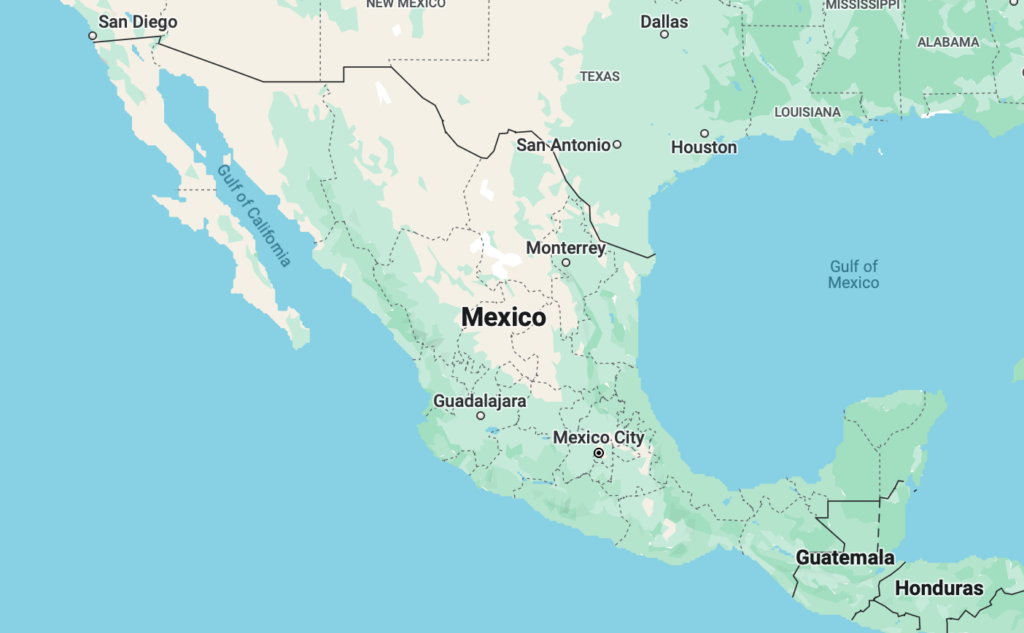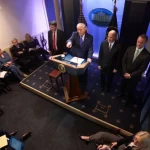
The Mexican government views the crisis affecting its border with the United States as an invasion of its own southern boundary, according to a senior U.S. lawmaker.
House Foreign Affairs Chairman Michael McCaul (R-TX) led a bipartisan congressional delegation to Mexico City this week and told the Washington Examiner that Mexican President Andres Manuel López Obrador had shared a growing frustration with how the immigration crisis was affecting his country.
“They’re increasingly concerned that they’re getting invaded by Central America, Venezuela, Haiti, and all these other countries,” McCaul said in an interview Friday following his return.
McCaul said it was the first time he heard Mexico say, “We know it’s a problem for you all, but it’s our problem, too, and we want to work together with you on this.”
McCaul described a “lengthy” and “productive” meeting with AMLO, as well as top Mexican officials, about the immigration and fentanyl problems that both countries shared. But McCaul said the surprise was learning that both countries were on board in support of two particular short-term and long-term solutions.
Mexico recently began flying Venezuelan immigrants back to Venezuela and has allowed the United States to fly Venezuelan immigrants to Mexico.
A Republican House Foreign Affairs aide who attended the Mexico City meetings said Mexican officials were “very keen” about touting their work removing Venezuelans and McCaul would speak with lawmakers about how to help Mexico do more deportation flights.
“That would provide a major deterrence in the short term,” McCaul said. “They currently have some military down there that they would allow us to assist them with that effort.”
McCaul said officials he spoke with said it was a factor in why arrests by Mexican authorities were halved over the past month, though Mexico has not disclosed those numbers publicly and a request for comment to the Mexican government was not returned.
The House committee aide said the Mexican government was very quick to respond to the U.S. government’s demands to do more to deter and prevent immigrants from traveling to the U.S. after the Biden administration shut down ports of entry in Texas, Arizona, and California in December.
Mexico is Texas’s top trade partner, with approximately $286 billion traded in 2022, according to the office of Rep. Henry Cuellar (D-TX), who attended the Mexico trip. A total of $855 billion in goods was traded between the U.S. and Mexico that year, which McCaul said could be used to “put leverage on them” as America’s largest trading partner.
“The deportation flights, if coupled with a long-term plan to help seal off the border between Mexico and Guatemala, always made more sense to me,” said McCaul. “One, you’re pushing the border out. We’re not playing defense on the one-yard line. And secondly, it’s a choke point where you can literally stop any migrant coming up outside of Mexico and from getting in.”
The Mexico-Guatemala border is 180 miles long compared to the U.S.-Mexico border, which is 2,000 miles long.

Mexico is underway with a major infrastructure project along its southern border with Guatemala, installing a railroad line from east to west.
“[AMLO] is putting his military down there for the security piece, so we opened up the idea of providing security at that border as an entryway for the migrants, in addition, like a processing center, through which all the migrants would have to go through,” McCaul said. “They would be detained pending the adjudication of [asylum claims]. Those who don’t have political asylum get removed, and those that do would be detained there so that they don’t get into the United States.”
Additionally, McCaul said he met with the country’s top official handling Mexico’s response to the fentanyl epidemic at the Mexican navy and shared that overdose deaths from the drug have taken more than 200,000 American lives over the past two years.
Chinese entities produce precursor ingredients and tools needed to make the pills and powder. The items are imported by Mexican cartels, then manufactured and moved north over the border and into the U.S.
“The fentanyl thing is extremely complicated,” McCaul said. “We’re going to continue to deal with this problem until I think the technology is perfected.”
McCaul was optimistic about a $40 billion Mexican project to come up with a technological solution to stop fentanyl from being unloaded from ships at ports into the country, as well as being caught by U.S. customs officers at the land ports of entry, but said the technology needed to find fentanyl in large loads was still years off from becoming a reality.
CLICK HERE TO READ MORE FROM THE WASHINGTON EXAMINER
As far as a House-Senate agreement on border and immigration language to include in a supplemental funding bill for Ukraine and Israel, McCaul said he believed that House Republicans should “still move forward on the things we can get.”
“The border problem’s not going away, and certainly it’s going to be worse a year from now if we don’t do anything. And so I think some would argue that we, they’d rather have this as an election issue and not give the Democrats any victories,” McCaul said. “But from a humanitarian or human tragedy issue … I don’t think we can wait until the next election.”







